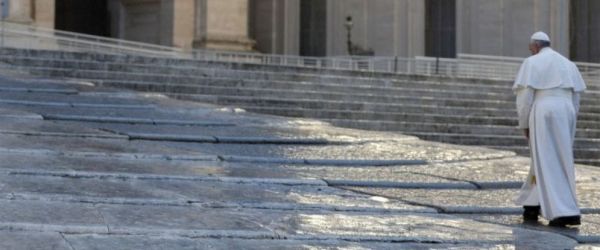Jesus’ teaching on prayer continues with two parables, which he modelled on the behaviour of a friend towards another friend, and that of a father towards his son (cf. vv. 5-12). Both are intended to teach us to have full confidence in God, who is Father. He knows our needs better than we do ourselves, but he wants us to present them to him boldly and persistently, because this is our way of participating in his work of salvation. Prayer is the first and principle “working instrument” we have in our hands! In being persistent with God, we don’t need to convince him, but to strengthen our faith and our patience, meaning our ability to strive together with God for the things that are truly important and necessary. In prayer there are two of us: God and I, striving together for the important things.
Among these, there is one, the great important thing that Jesus speaks of in today’s Gospel, which we almost never ask for, and that is the Holy Spirit. “Give me the Holy Spirit...!” And Jesus says, “If you then, who are evil, know how to give good gifts to your children, how much more will the heavenly Father give the Holy Spirit to those who ask him for it!” (v. 13). The Holy Spirit! We must ask that the Holy Spirit comes within us. But what is the use of the Holy Spirit? We need him to live well, to live with wisdom and love, doing God’s will. What a beautiful prayer it would be if, this week, each of us were to ask the Father: “Father, give me the Holy Spirit!”. Our Lady demonstrates this with her life, which was entirely enlivened by the Spirit of God. May She, united to Jesus, help us to pray to the Father so that we might not live in a worldly manner, but according to the Gospel, guided by the Holy Spirit.
[Pope Francis, Angelus 24 July 2016]












